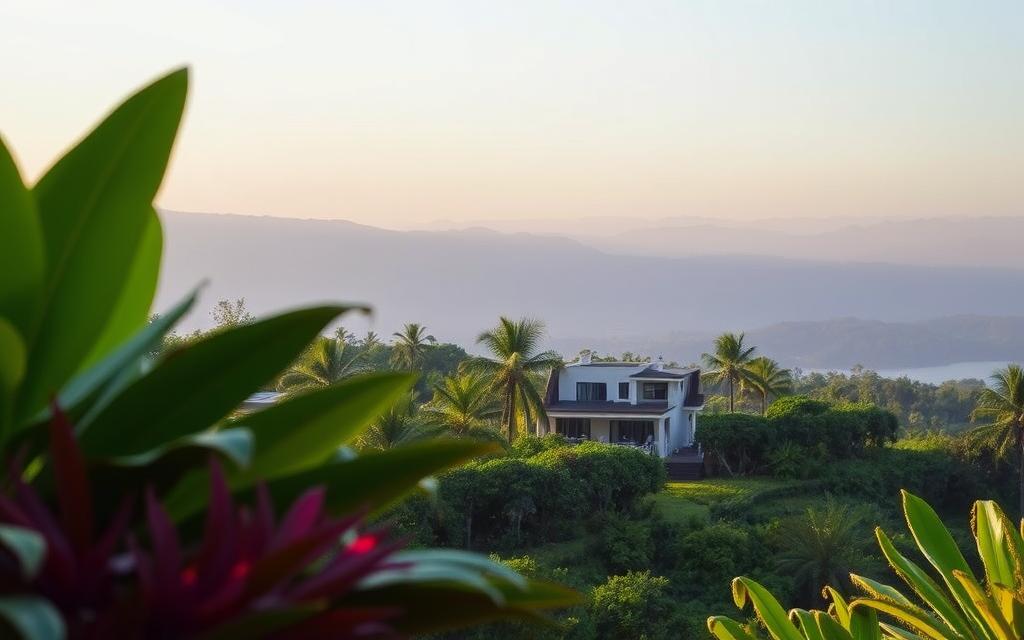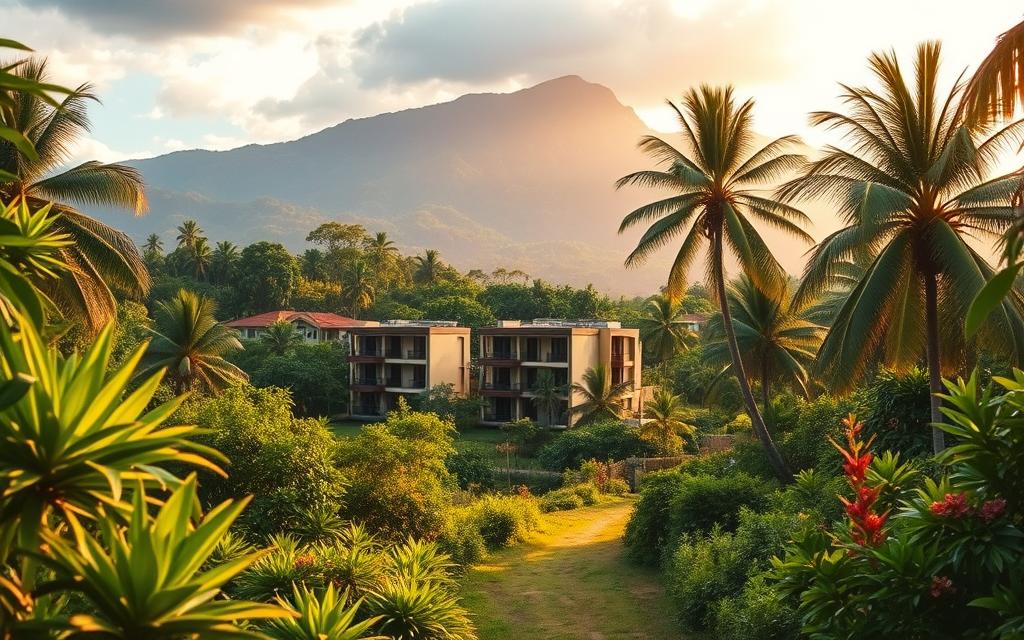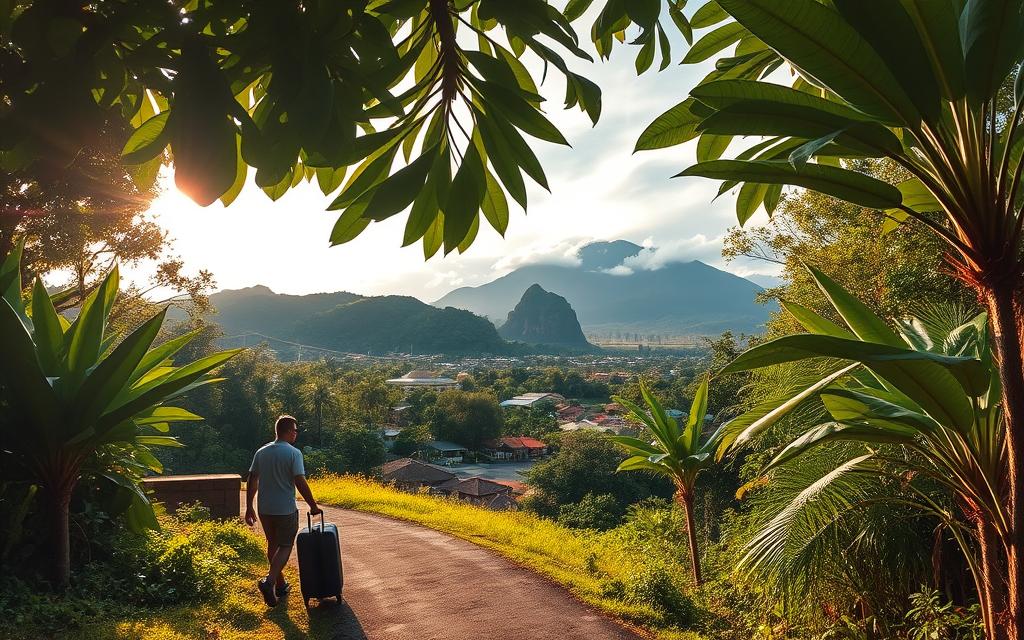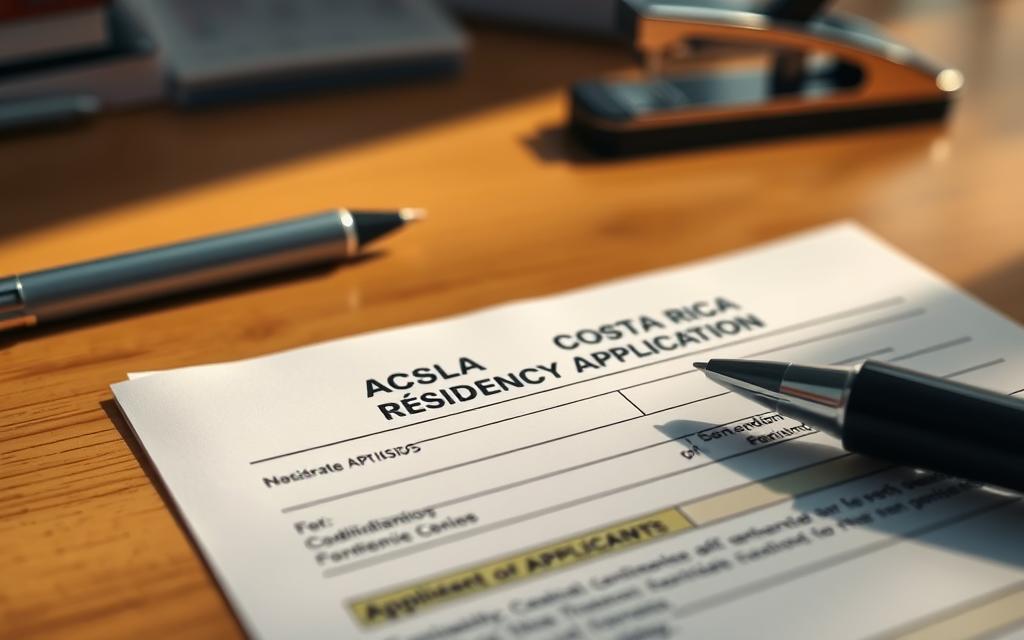Costa Rica Residency: Can I travel while waiting for approval?

Residency in Costa Rica has become an attractive option for individuals and families seeking a better quality of life. Known for its natural beauty and welcoming culture, this Central American country is a desirable destination for those looking to settle.
For those planning to stay in Costa Rica for extended periods or enter and leave frequently, applying for residency is advisable. Staying beyond the authorized tourist visa term can lead to issues, including deportation or denial of re-entry.
Understanding the residency process is crucial for foreigners. The application process typically takes about a year, during which applicants often wonder about their travel rights. We'll explore the comprehensive guide to Costa Rica residency, focusing on travel permissions during the application process and the immigration requirements.
Understanding Costa Rica Residency Options

Costa Rica offers a diverse range of residency options tailored to different needs and circumstances. For individuals considering a move to this Central American country, understanding the various pathways to residency is essential. This knowledge enables applicants to choose the most suitable program based on their financial situation, lifestyle, and long-term goals.
Types of Residency Programs Available
Costa Rica provides several residency programs, including the Pensionado program for retirees, the Rentista program for individuals with a guaranteed income, and the Inversionista program for investors. The Pensionado program requires a minimum monthly pension of $1,000, while the Rentista program necessitates a guaranteed income of $2,500 per month. Each program has its specific financial requirements and documentation needs.
The Inversionista program, for instance, requires a significant investment in the country, typically in real estate or a business venture. For more detailed information on the residency requirements and processes, visiting the official Costa Rican immigration website or consulting with a legal expert can be beneficial. You can also find more information on residency duration and its implications.
Benefits of Obtaining Residency in Costa Rica
Obtaining residency in Costa Rica comes with numerous benefits, including the elimination of the need for regular border runs, legal permission to work, the ability to obtain a Costa Rican driver's license, and easier access to banking services. Residency also opens up opportunities for long-term planning and stability in the country. Temporary residency is typically granted for two years, after which applicants can apply for permanent residency.
Understanding the differences between temporary and permanent residency status is crucial for planning one's future in Costa Rica. Family members, including spouses and dependent children under 18, can be included in the residency application. The "Vinculado" or "linked" residency option is available for those married to a Costa Rican citizen or with a child born in Costa Rica, providing an alternative pathway to residency.
Can I Travel While Waiting for Costa Rica Residency Approval?

One of the primary concerns for individuals applying for residency in Costa Rica is the ability to travel during the application process. Once you have formally filed your residency application, you are permitted to stay in Costa Rica beyond the expiration date of your tourist visa.
For Canadian and US citizens, the tourist visa duration is usually 3 months, but the immigration authorities have the discretion to grant it for a shorter term. Upon submitting your residency application, you'll receive a document called an expediente, which serves as proof of your pending application and exempts you from renewing your tourist visa through border runs.
Traveling Within Costa Rica During Application Processing
With your expediente, you can move freely throughout Costa Rica without concerns about your immigration status during the application processing period. This means you can explore the country, visit different regions, and enjoy the local culture without worrying about your residency status.
International Travel Considerations During the Waiting Period
When it comes to international travel, you can leave and re-enter Costa Rica during your application processing, but there are important considerations and documentation requirements. If you travel by land to neighboring countries, you can present your expediente to border officials when returning to Costa Rica without needing an exit ticket. However, if you travel by air, you may still need to show an exit ticket when flying back into Costa Rica, as airline policies may differ from land border procedures.
We recommend carrying both your passport and expediente document whenever traveling within or outside of Costa Rica during your residency application processing period.
The Costa Rica Residency Application Process

Navigating the Costa Rica residency application process requires a thorough understanding of the necessary documents and timelines. The journey to becoming a resident involves several key steps, from gathering required documents to submitting your application.
Required Documentation and Preparation
To apply for residency in Costa Rica, you'll need to gather several documents from your home country, most of which require an "apostille," a form of international certification. These documents include your birth certificate, criminal record, marriage certificate (if applicable), and fingerprints. Ensuring these documents are properly apostilled is crucial for a smooth application process.
We'll guide you through the comprehensive documentation requirements, including birth certificates, criminal background checks, and financial proof documents. All official documents from your home country must be apostilled, which involves obtaining recent documents and having them certified by your country's designated authority.
Timeline Expectations for Approval
Once your application is filed correctly and completely, the approval process typically takes around one year. However, due to the COVID-19 pandemic, delays have occurred, potentially lengthening this timeline. Understanding the importance of document expiration dates is crucial, as most official documents are only valid for six months from issuance for immigration purposes.
Timeline expectations for Costa Rica residency approval typically range from 8-12 months, though delays can occur due to backlogs at immigration offices or incomplete applications. We recommend working with a qualified immigration attorney who specializes in Costa Rica residency applications to ensure all documentation is properly prepared and submitted. For more detailed information, you can visit our guide on how to get residency in Costa.
Legal Status While Your Application is Pending

While waiting for your Costa Rica residency application to be approved, it's essential to understand your legal status in the country. Upon applying, you receive a document known as an expediente, which serves as official proof that your residency application is in process.
Understanding Your Expediente and Its Benefits
The expediente is one of the most valuable benefits of applying for residency, as it exempts you from the requirement to leave Costa Rica when your tourist visa expires. This means you can remain in the country without needing to make another border run, providing significant convenience during the waiting period. For more information on the next steps after obtaining residency, you can visit this resource.
Working and Driving Legally During the Waiting Period
Understanding the limitations and permissions during your waiting period is crucial. While you can legally remain in Costa Rica, there are restrictions on employment and other activities. Temporary residents under the investor, annuitant, or pensioner regime can work in their own businesses, but to work as an employee, you'll need to attain permanent resident status after three years of being a legal temporary resident. For driving, you can continue using your foreign driver's license as long as it remains valid, but you cannot obtain a Costa Rican driver's license until your residency is approved.
It's also important to note that your legal status during this period can affect various aspects of daily life, including banking and healthcare access. Ensuring you understand and comply with all requirements will help navigate these areas smoothly.
Common Challenges and Solutions During the Waiting Period

The waiting period for Costa Rica residency approval can be fraught with difficulties, from document expiration to legal status concerns. Applicants must navigate these challenges to ensure a smooth transition to residency.
Document Expiration Issues
One of the significant challenges applicants face is the expiration of crucial documents. Most official documents required for residency applications, such as birth certificates and background checks, are only valid for six months. If the processing time exceeds this period, applicants may need to resubmit updated documents, causing additional expenses and delays. To mitigate this, it's essential to time the application submission carefully and be prepared to renew key documents.
Maintaining Legal Status if Delays Occur
Delays in the application process can also jeopardize an applicant's legal status in Costa Rica. To maintain legal status, it's crucial to work closely with an immigration attorney to file extensions or additional documentation as needed. This proactive approach can help prevent issues related to overstaying a tourist visa or other legal complications.
By understanding these common challenges and implementing the suggested solutions, applicants can better navigate the complexities of the Costa Rica residency application process.
Conclusion: Making the Most of Your Transition to Residency
The journey to Costa Rica residency can be complex, but the rewards are well worth the effort for those committed to making the country their home. While the process may be lengthy, the benefits of residency status make it worthwhile for long-term residents.
During the transition period, it's essential to integrate into Costa Rican culture, build local connections, and prepare for your future as a legal resident. We recommend exploring different regions of Costa Rica to determine where you might want to settle permanently once your residency is approved.
Financial planning is also crucial, including maintaining your qualifying income or investments and preparing for the costs associated with establishing your life in Costa Rica. Understanding the renewal process for temporary residency is vital, as most applicants will need to renew their status before becoming eligible for permanent residency after three years.
For those considering long-term plans in Costa Rica, the path from residency to potential citizenship requires at least seven years of residency for most nationalities. With proper preparation and patience, the transition to becoming a legal resident of Costa Rica can be a smooth and rewarding journey. For more information, please contact us at www.jaroscr.com, info@jaroscr.com, or +(506)7182-8969.


